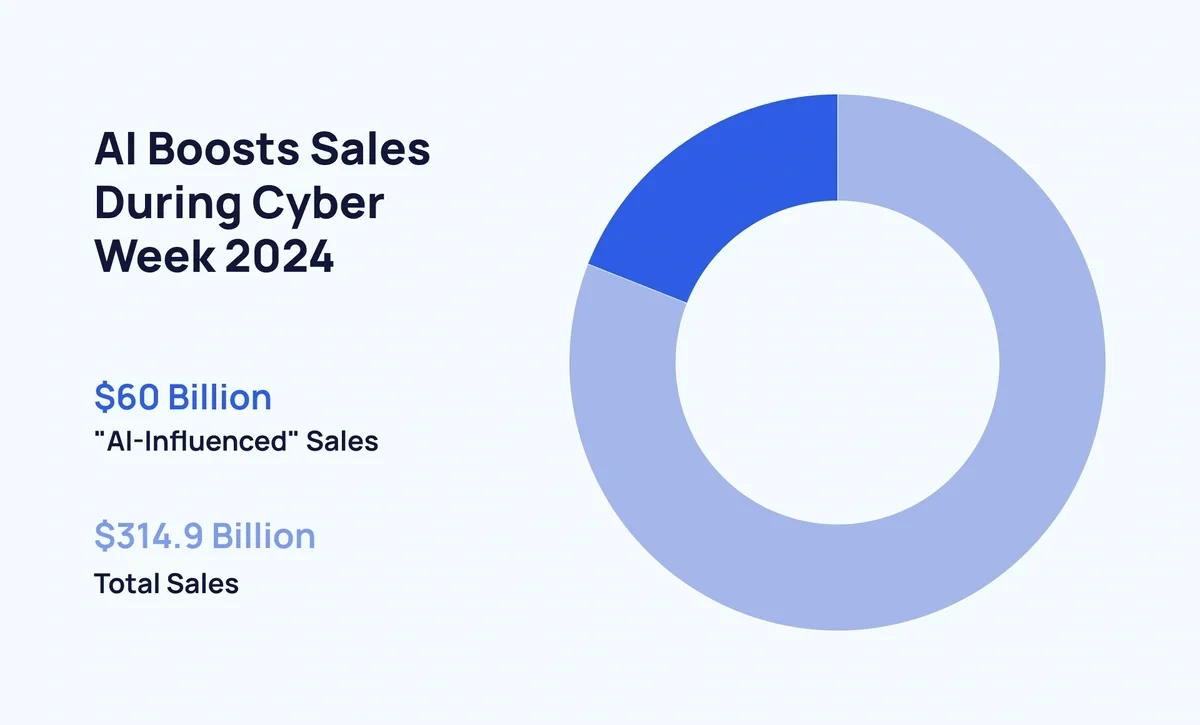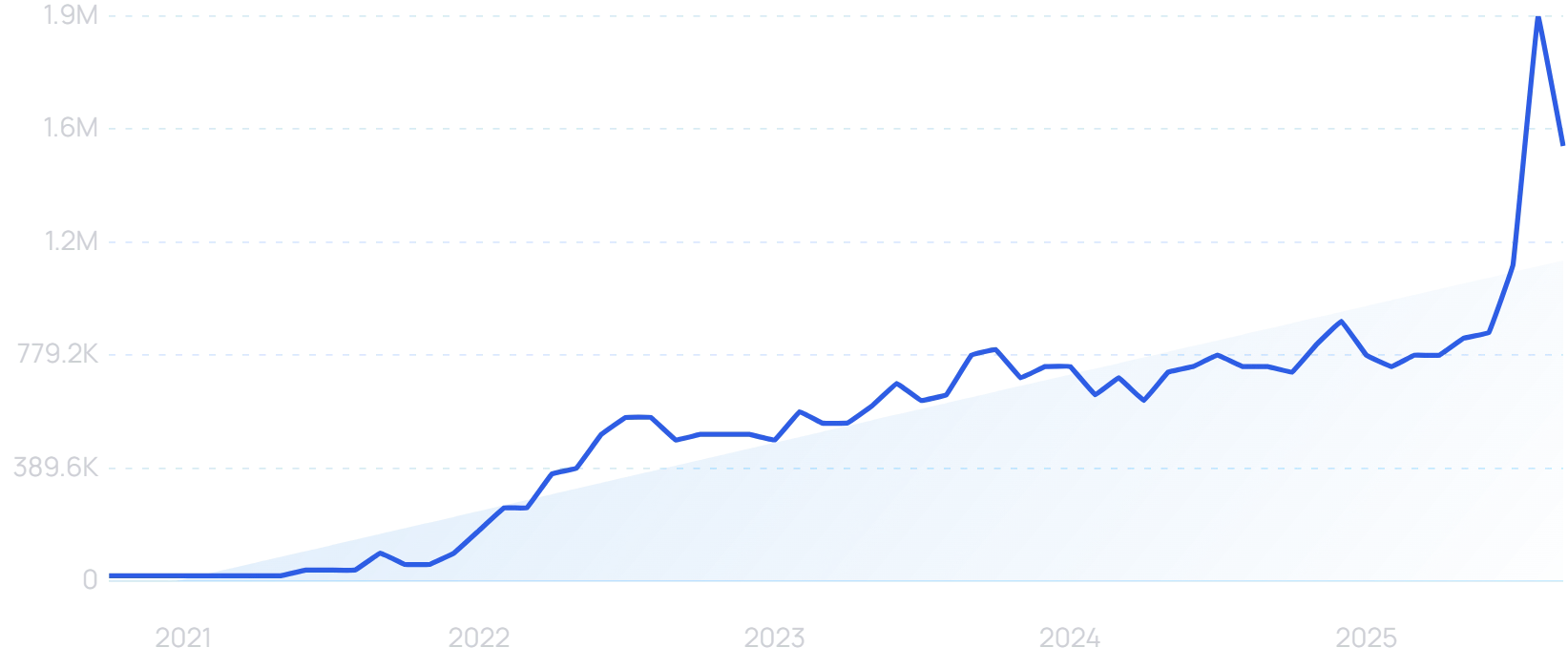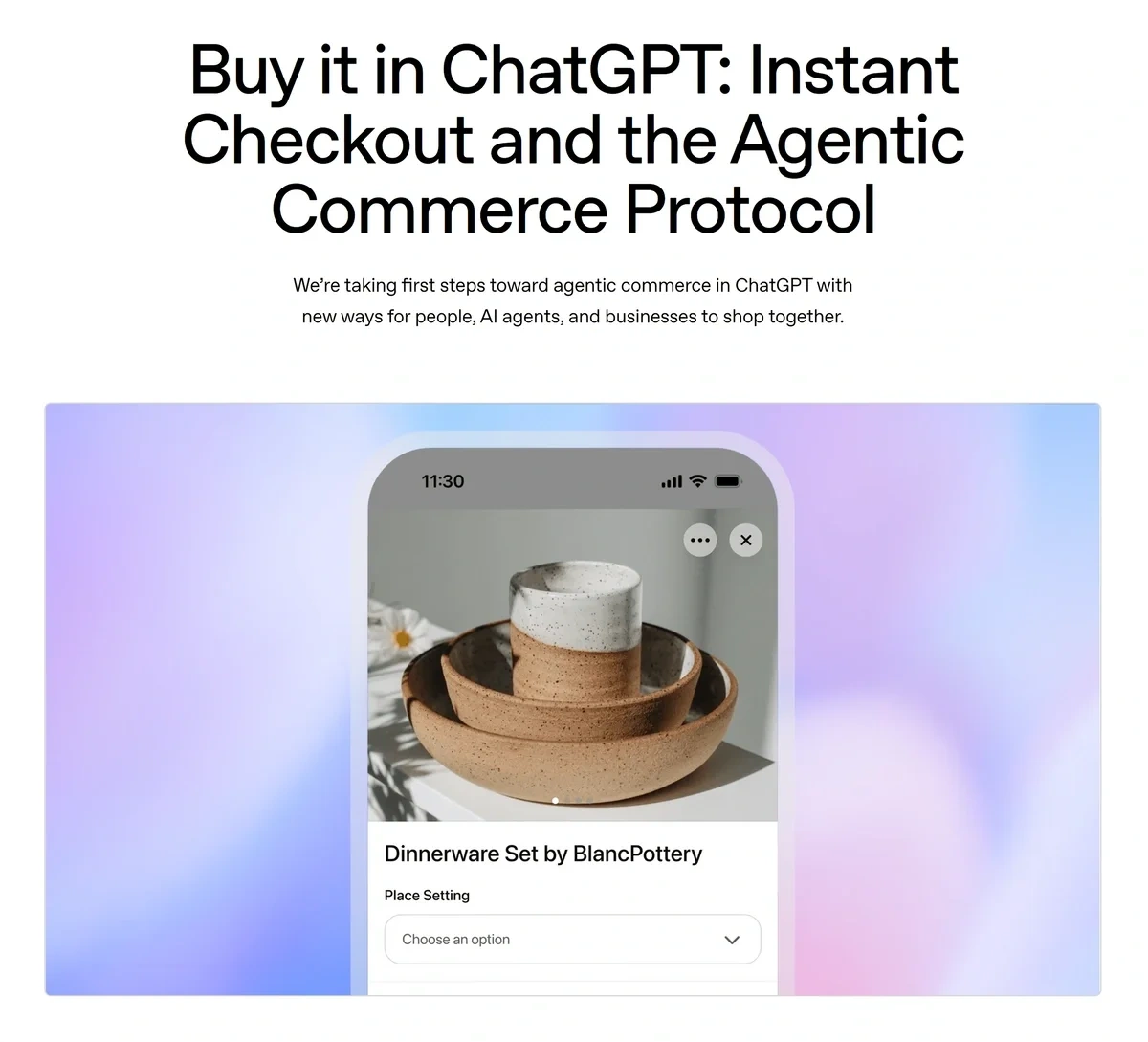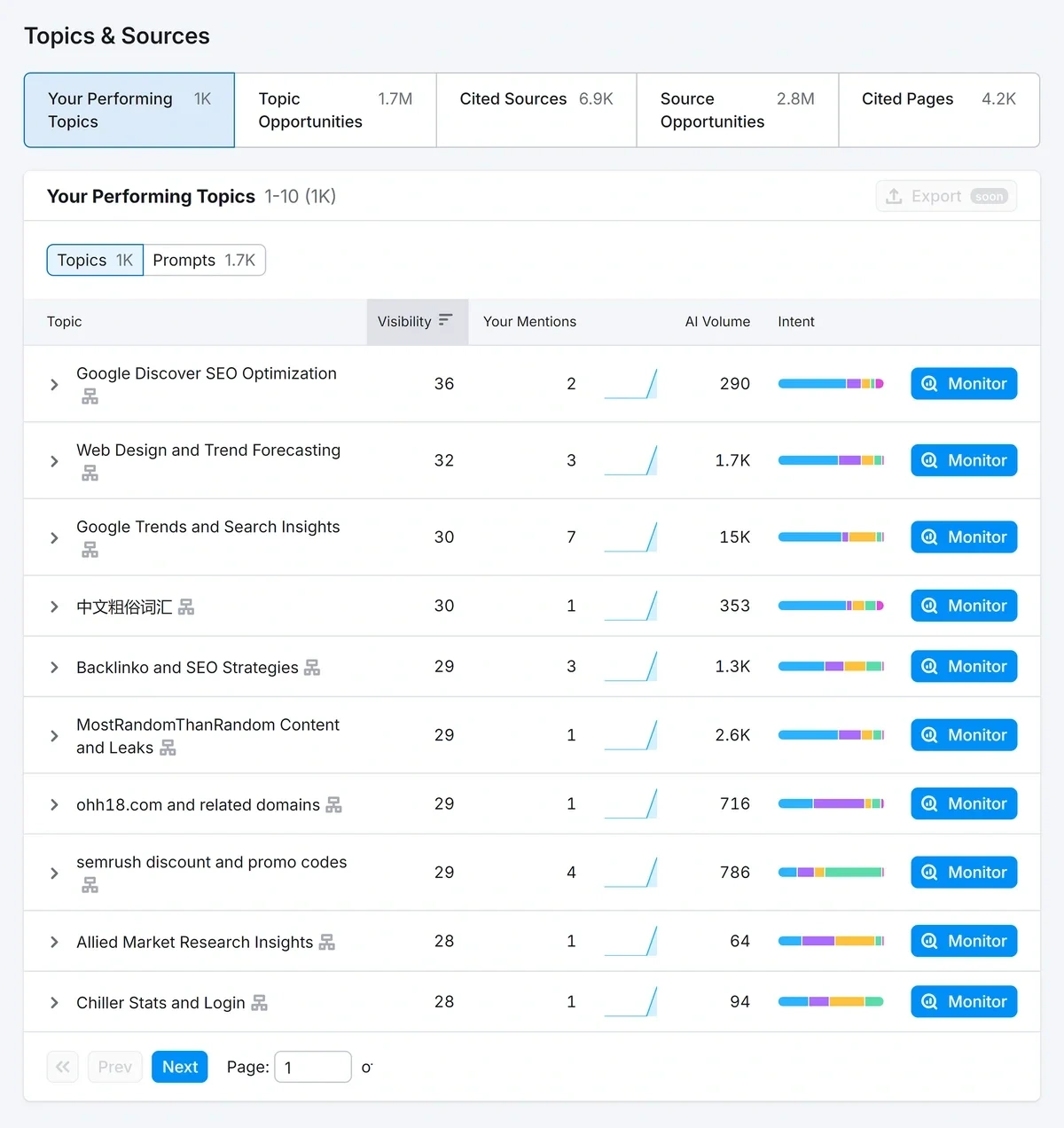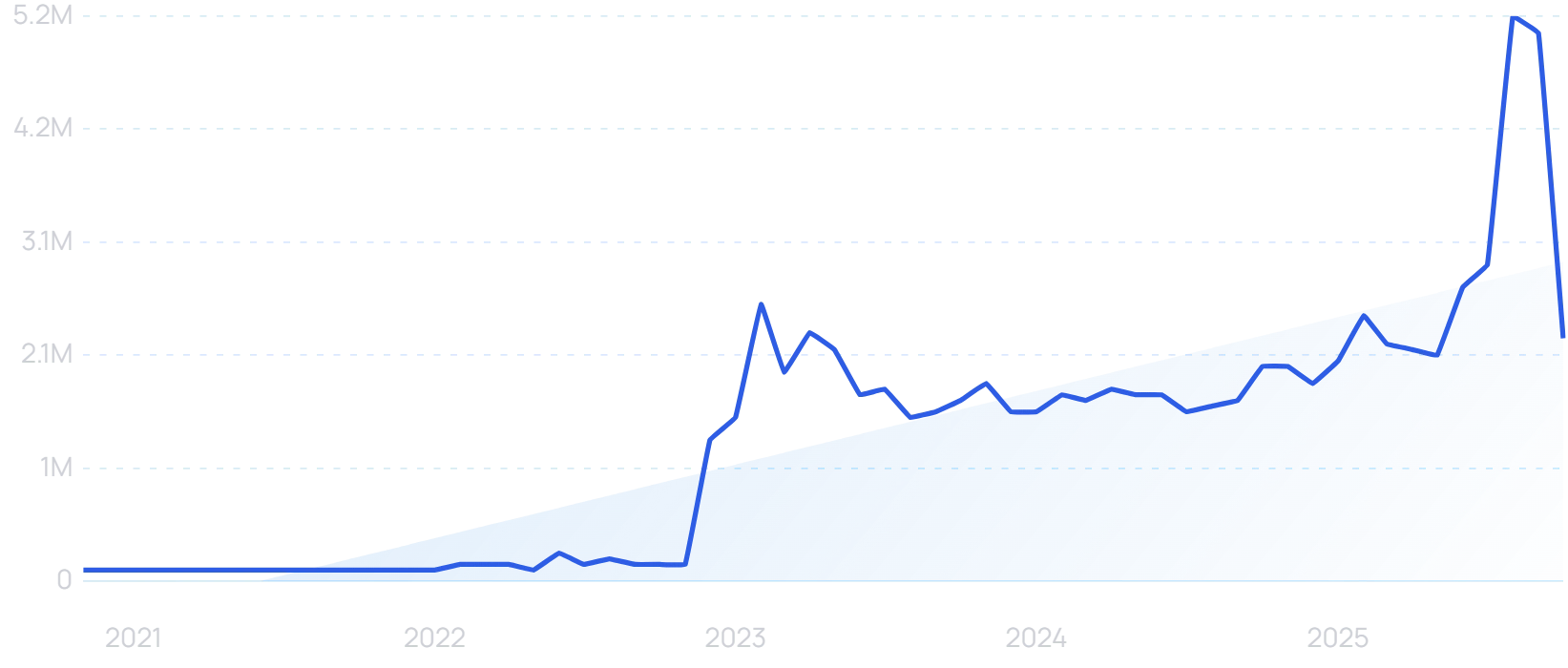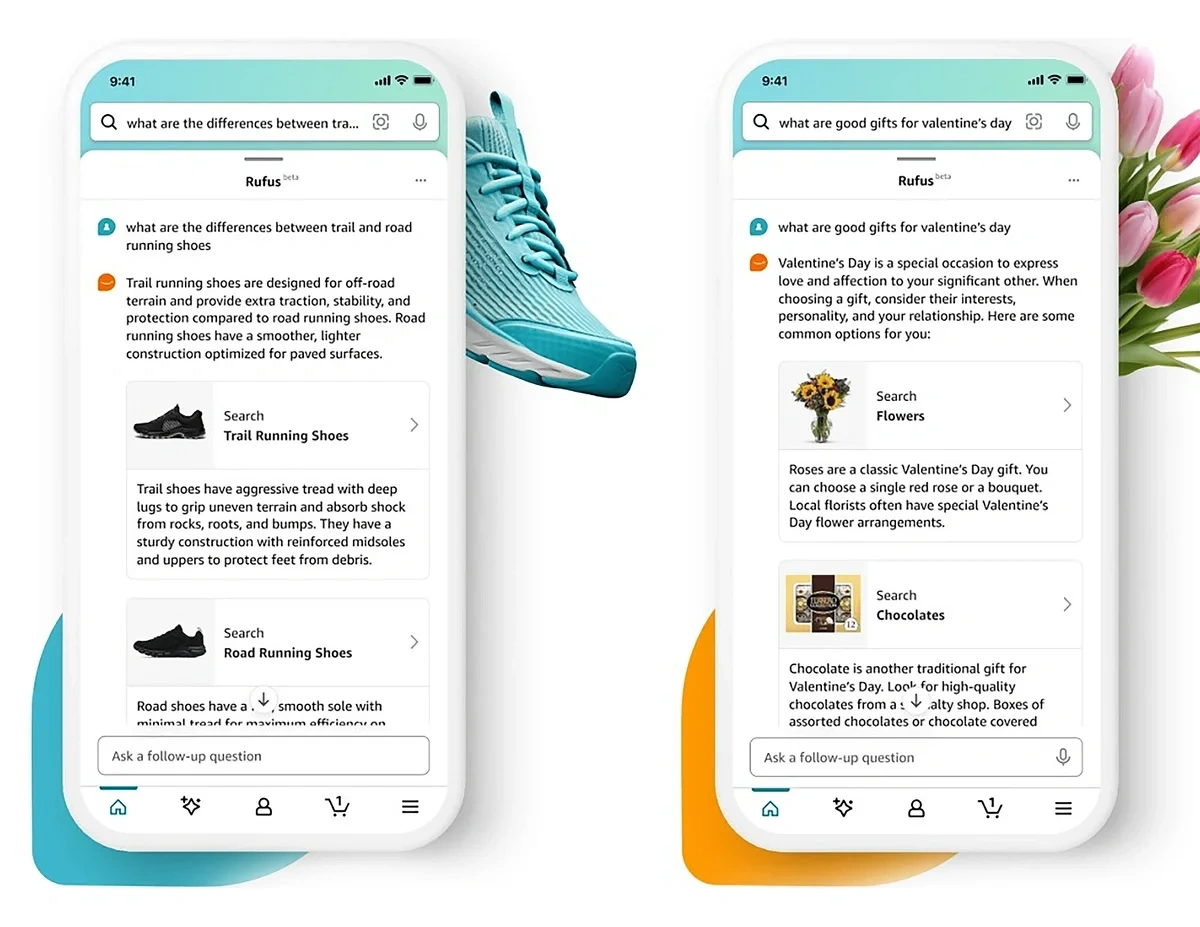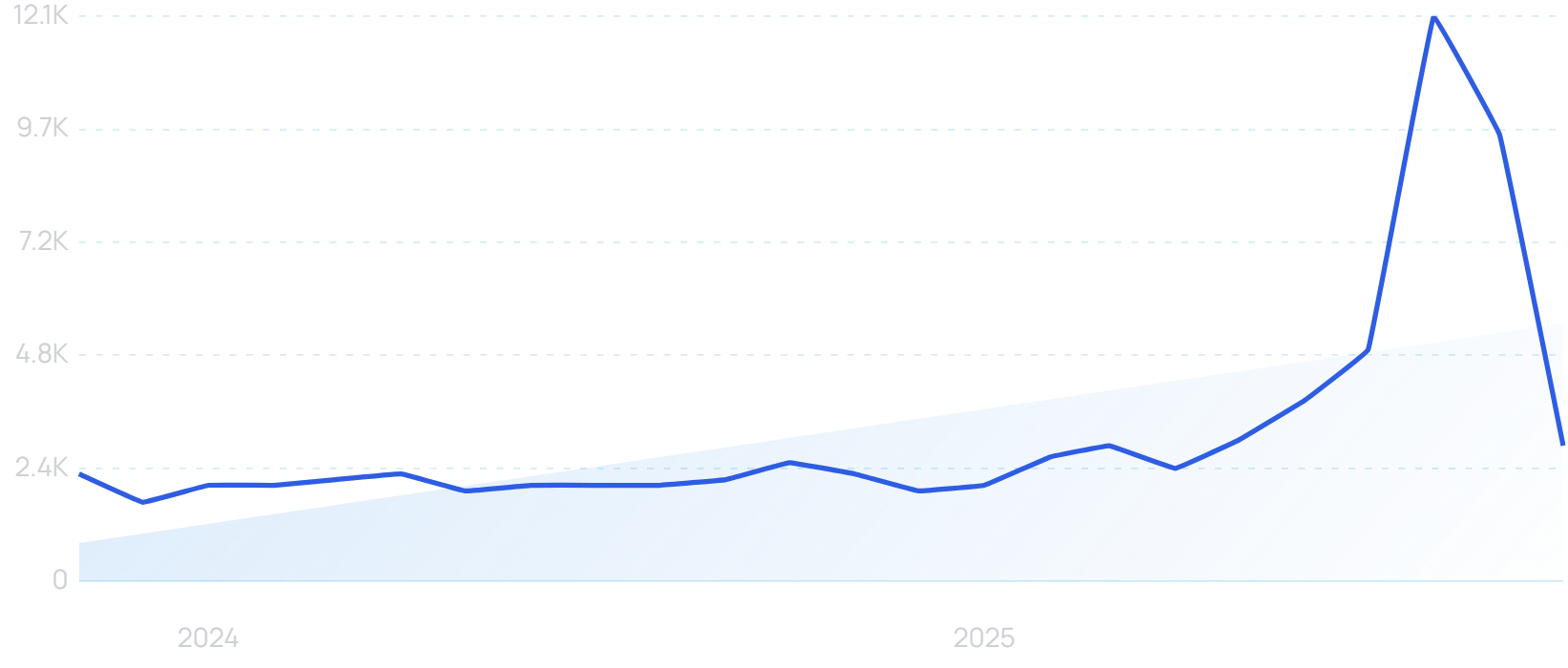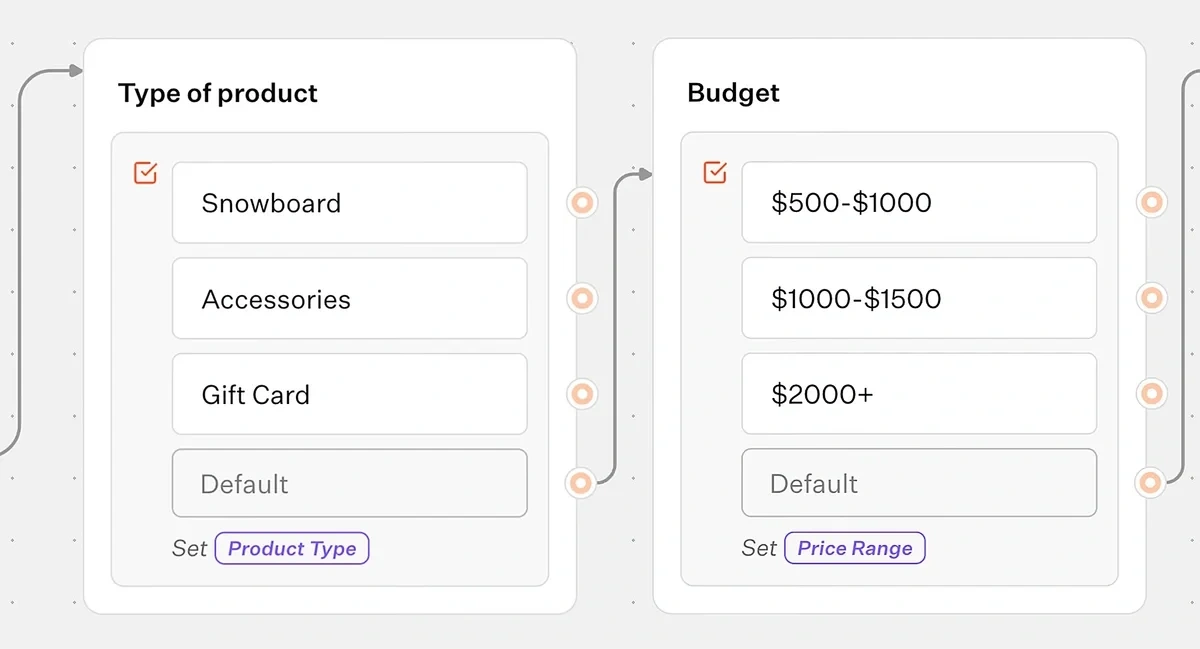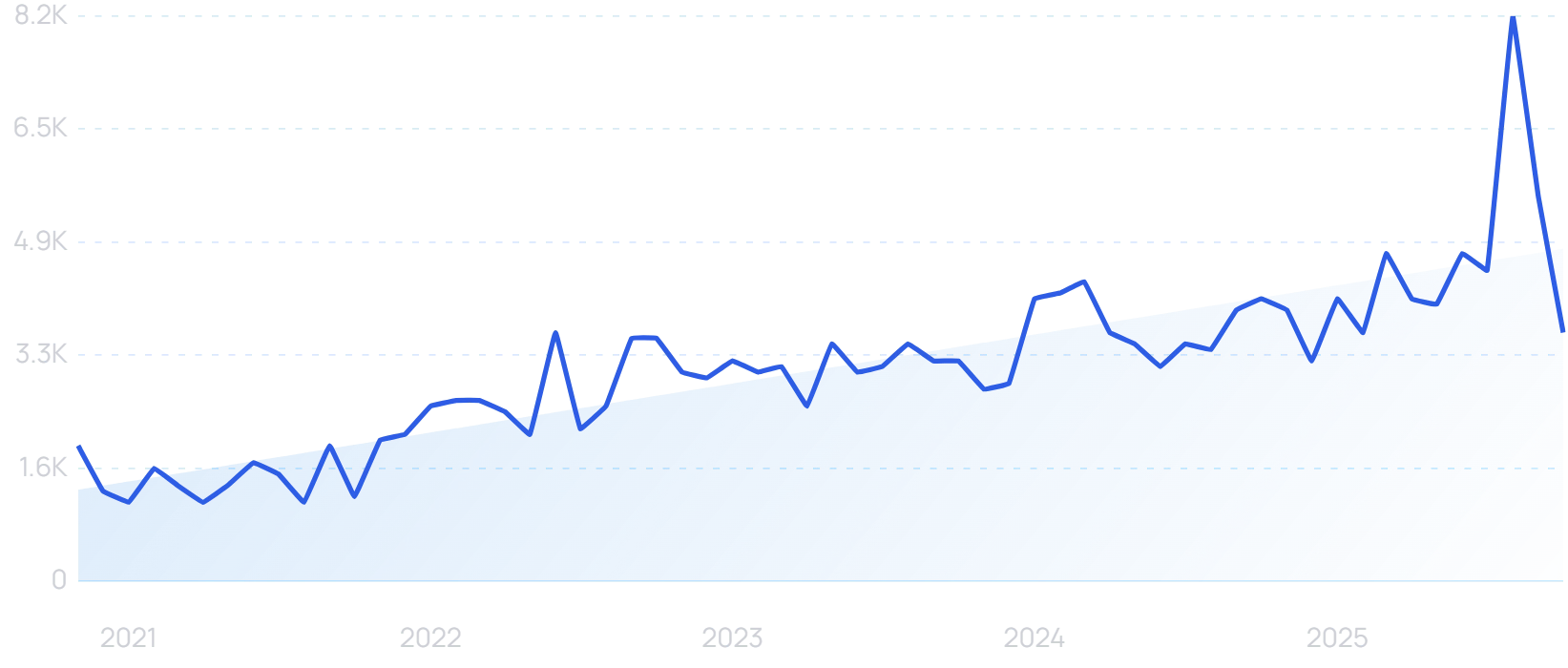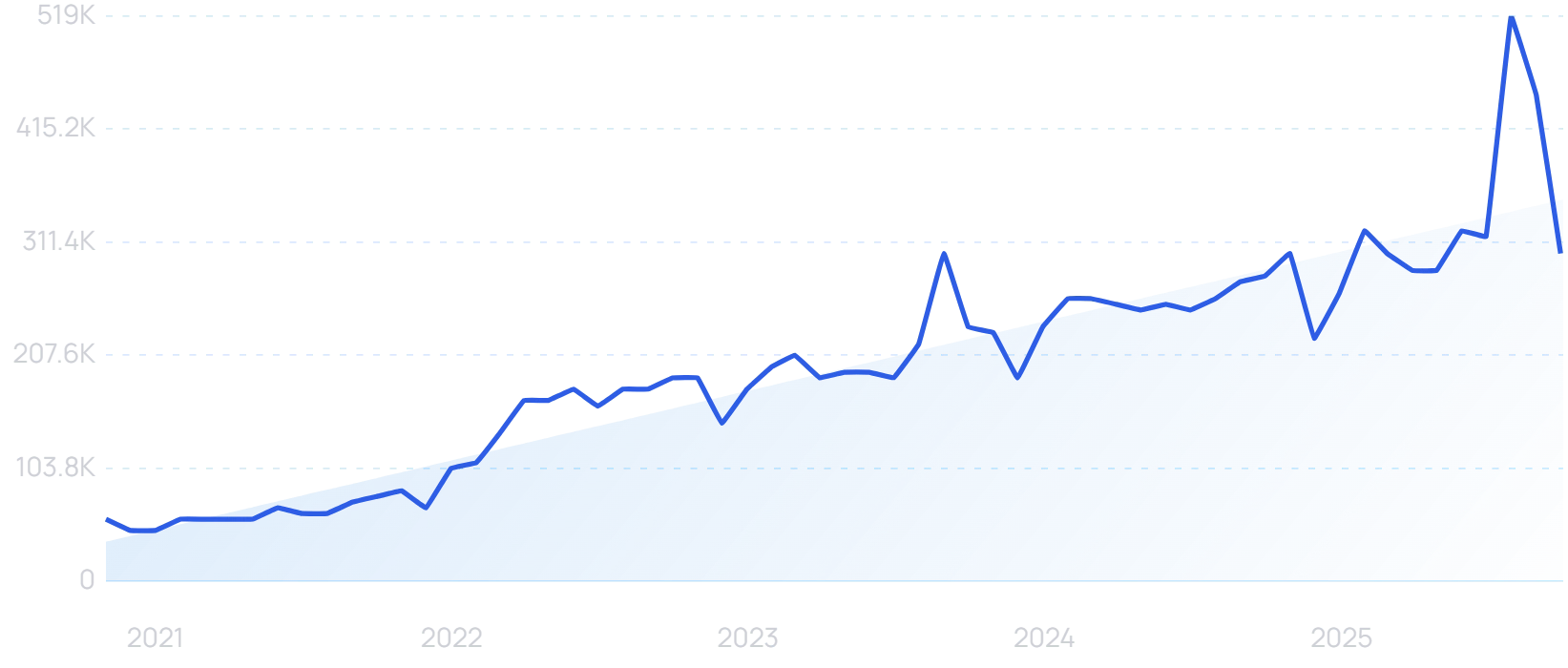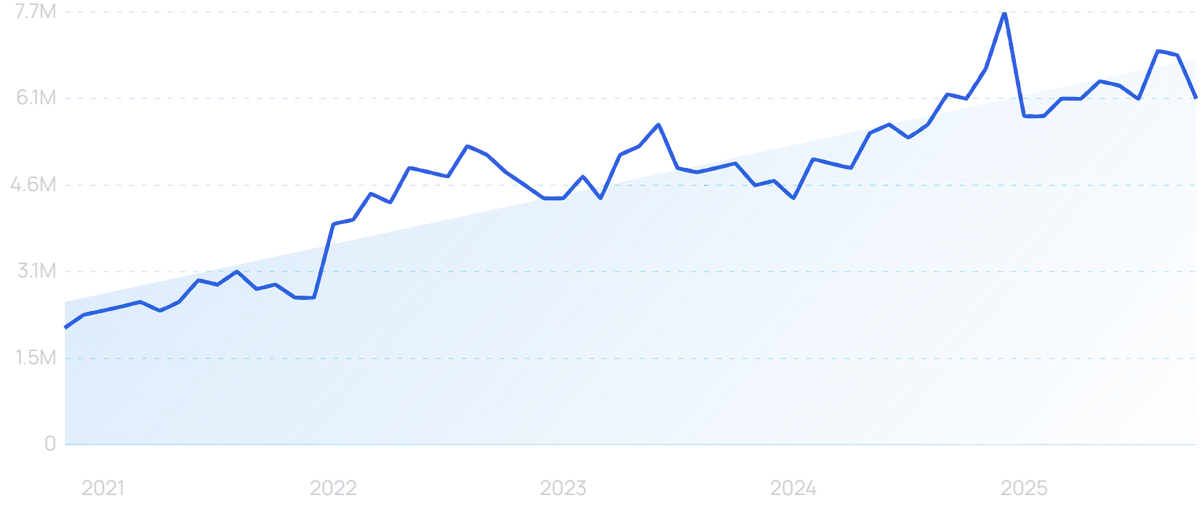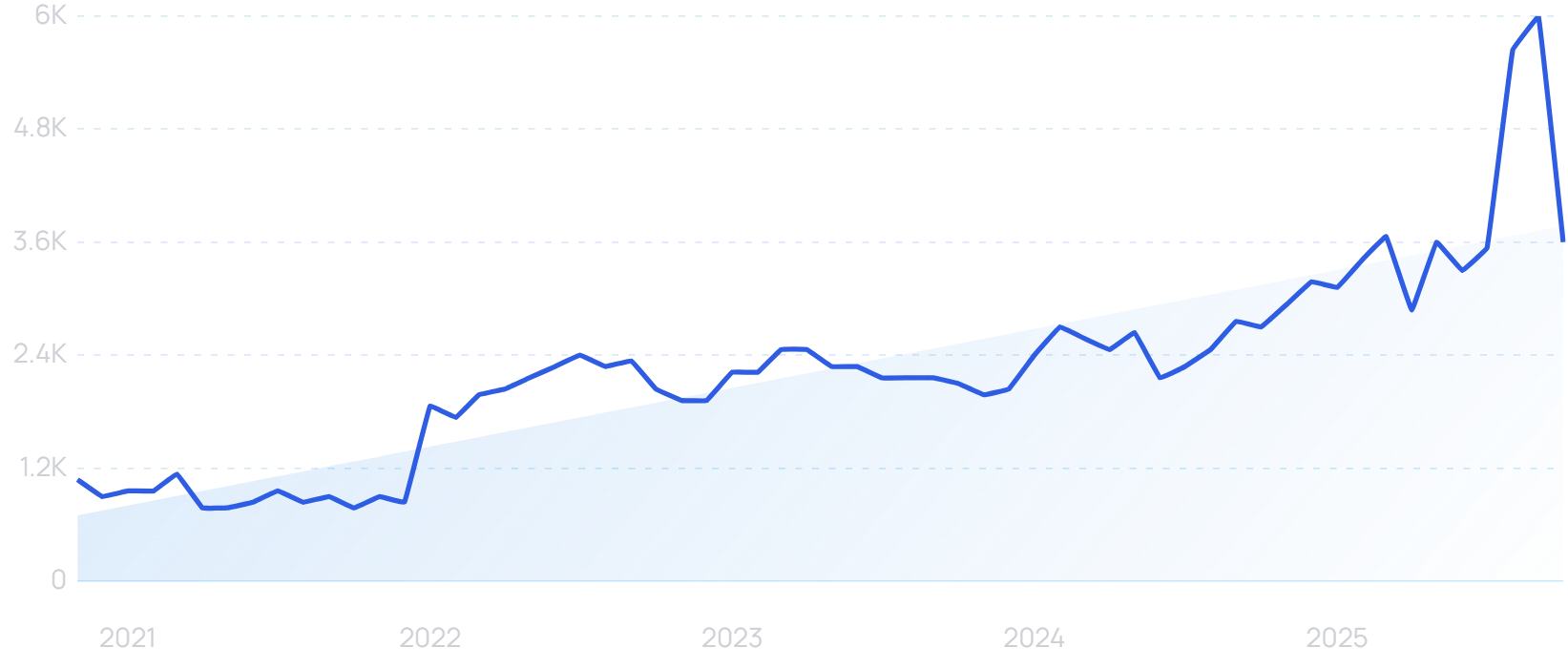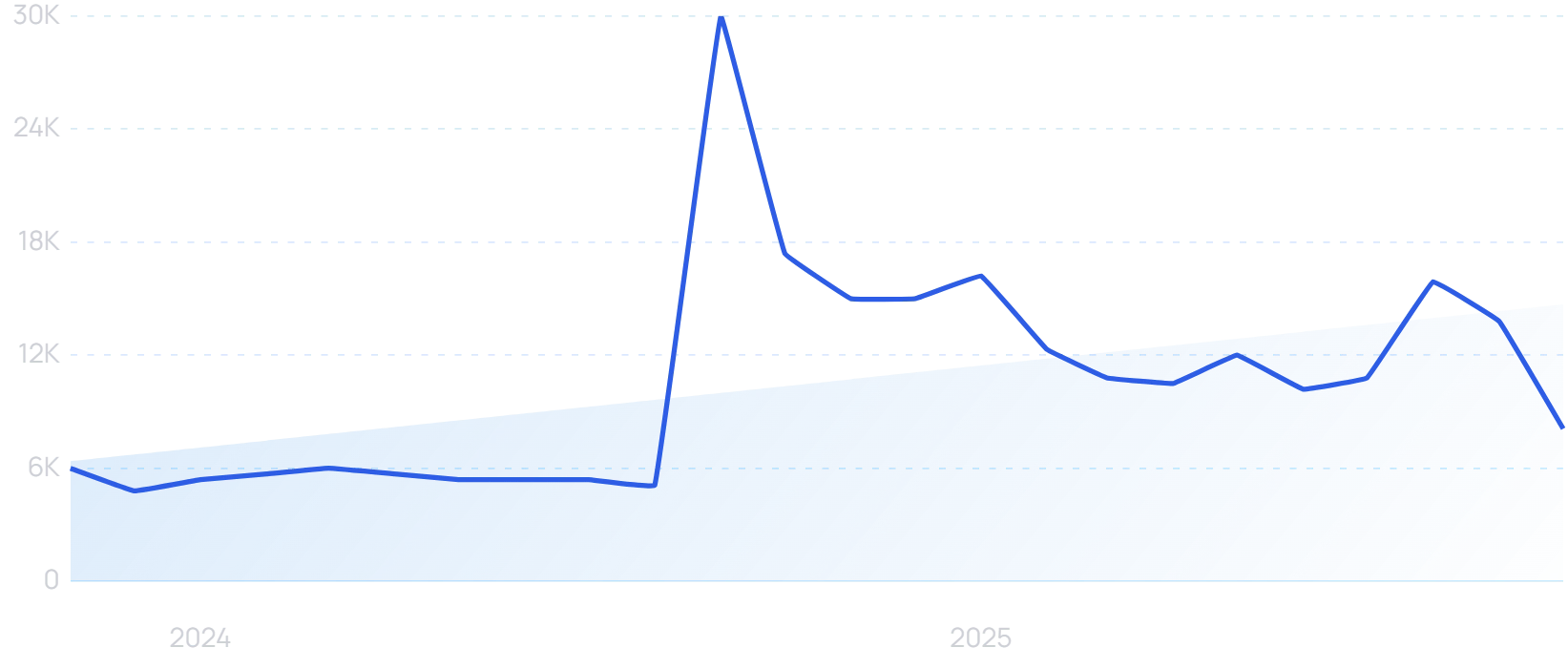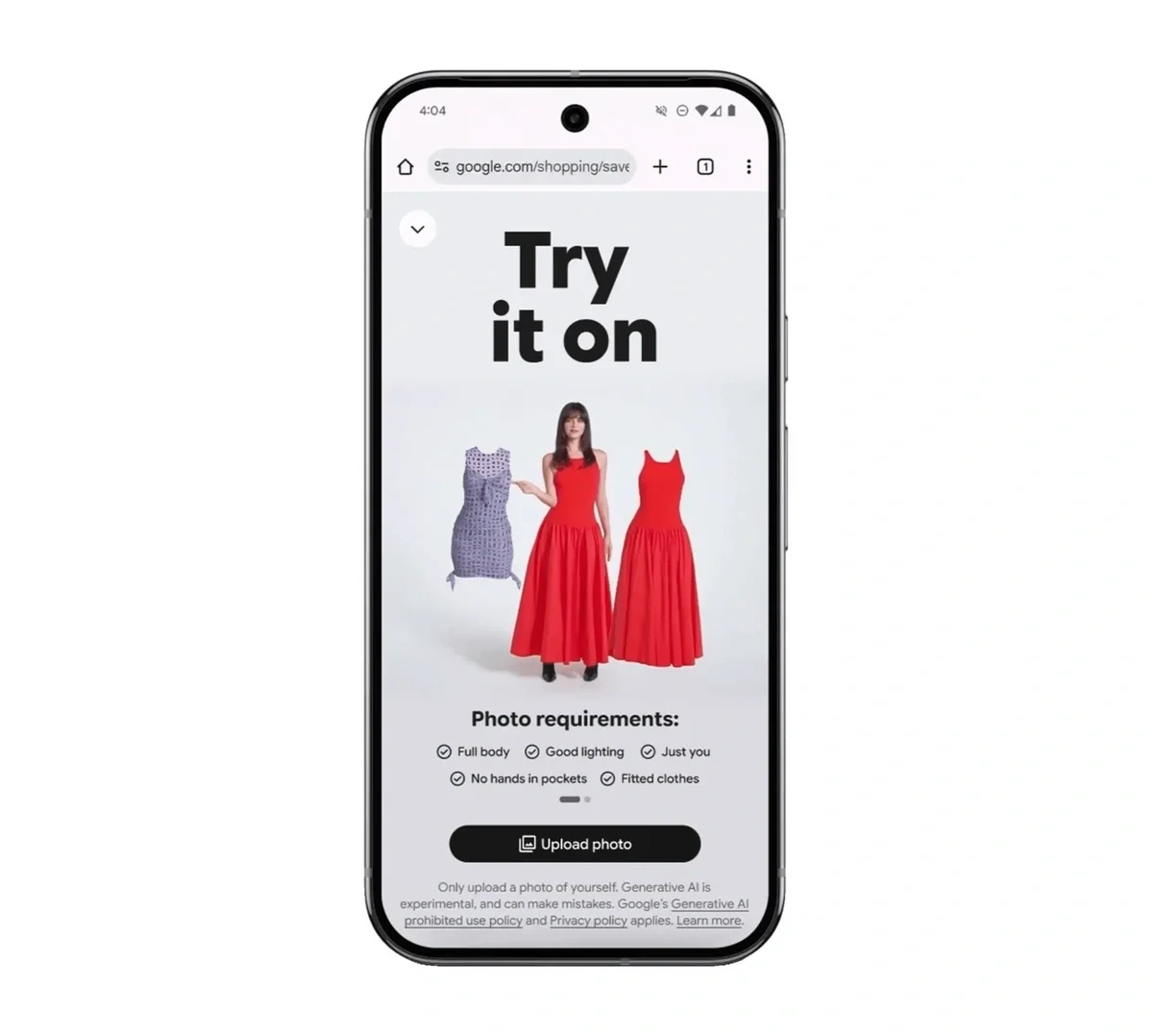Get Advanced Insights on Any Topic
Discover Trends 12+ Months Before Everyone Else
How We Find Trends Before They Take Off
Exploding Topics’ advanced algorithm monitors millions of unstructured data points to spot trends early on.

Keyword Research
Performance Tracking
Competitor Intelligence
Fix Your Site’s SEO Issues in 30 Seconds
Find technical issues blocking search visibility. Get prioritized, actionable fixes in seconds.
Powered by data from
How AI Is Giving Black Friday a $60 billion boost
AI is having a transformative effect on the holiday shopping season.
It played a role in $60 billion worth of sales across “Cyber Week” last year, starting with Black Friday and culminating in Cyber Monday.
And in 2025, AI is set to have an even bigger impact on Black Friday and holiday sales.
A year on, AI is more embedded in users’ everyday lives. And new features and innovations continue to roll out.
Read on to find out how agentic commerce, AI personalization, retail chatbots, and more are set to shape Black Friday and Cyber Monday 2025.
Agentic Commerce: Black Friday Consumers Use AI to Shop
The internet transformed the face of commerce. Amazon and eBay launched in the 1990s, and they are still behemoths today. The websites have obviously evolved and branched out with time, but the fundamentals are comparable to what they were at launch.
But in the last few years, there has been a real shake-up in online shopping for the first time.
Social commerce has arrived in a big way, primarily via TikTok Shop.
“TikTok Shop” searches are up by 7600% in the last 5 years.
In 2021, TikTok Shop's Gross Merchandise Value (GMV) totalled $1 billion. Just 3 years later, in 2024, its GMV was $33 billion.
And in 2025-2026, the next e-commerce trend will be agentic commerce.
Agentic commerce involves users authorizing chatbots to shop on their behalf. They provide detailed instructions to AI agents, which in turn communicate with retailers to complete orders.
Just in time for the holiday sales period, OpenAI has announced the US rollout of Instant Checkout. This allows ChatGPT users to buy third-party products from within the chatbot.
Last Black Friday, ChatGPT had 300 million monthly users. In 2025, that number is between 700 and 800 million.
More than 100 million of those users are US-based and will therefore have access to Instant Checkout.
This is highly significant, given that ChatGPT users are demonstrably already using AI as a shopping tool. During the last Cyber Week, Adobe Analytics found that traffic to retail sites from third-party chatbots increased by 1,950%.
For Black Friday and Cyber Monday 2025, more than half of consumers intend to use AI to compare prices, search for products, and get personalized recommendations.
Meanwhile, an Exploding Topics study has found that research (including product research) is the top personal AI use case. Now, consumers will be able to compare and buy products in the same place.
At launch, Instant Checkout is limited to Etsy stores. But with gross merchandise spending on the e-commerce platform hitting $3.3 billion in the previous holiday quarter (Q4 2024), that’s still a huge amount of potential custom that could go through ChatGPT.
And OpenAI added in its announcement of Instant Checkout that more than 1 million Shopify merchants are coming soon.
In the future, its Agentic Commerce Protocol will theoretically allow any retailer and any chatbot to support AI shopping.
For now, Black Friday 2025 could be the first step into a new era of visibility, one in which AI optimization and software like the Semrush AI Visibility Toolkit are vital.
The Semrush AI Visibility Toolkit lets you track topics and prompts where AI is mentioning your brand, as well as showing opportunities to improve.
Holiday Shoppers Embrace E-Commerce Chatbots
Agentic commerce is a particularly powerful e-commerce innovation because it meets shoppers where they are at. In this respect, it has a lot in common with social commerce.
But there are also many ways that AI is being used on the retailer side to appeal to consumers and ultimately boost sales. In particular, various websites are implementing their own chatbots to guide customers through their purchases.
“AI chatbot” searches are up by 3650% in the last 5 years.
According to Salesforce, retailers who implemented AI agents in customer service experiences saw a 9% higher conversion rate during Black Friday 2024. Use of these services increased by 31% YoY, contributing to the $60 billion AI boost to holiday sales.
For instance, last year was the first Black Friday featuring Rufus, Amazon’s AI shopping assistant.
Users can ask Rufus for product recommendations and comparisons. The AI chatbot, which has access to Amazon’s extensive catalog of item descriptions, reviews, and ratings, returns helpful, plain-language advice.
Amazon cited Rufus as one of the factors in its biggest ever Thanksgiving holiday shopping event in 2024. It has also launched the chatbot in the UK ahead of this year’s Black Friday.
EMarketer analyst Zak Stambor predicts that the “majority” of AI-driven purchases across the 2025 holiday period will come via on-page chatbots like Rufus.
And AI chatbots during Black Friday and Cyber Monday aren’t only for the retail giants. There are an increasing number of no-code tools designed to let any e-commerce business set up a chatbot.
“Chatbot builder” searches have increased by 229% in the last 2 years.
Typebot is one popular chatbot builder. It has published more than 1.5 million bots, handling 2 million chats per month.
It says that its bots can engage thousands of visitors per month during surge events like Black Friday, where human teams would traditionally get overwhelmed.
Typebot and other AI chatbot builders integrate natively with Shopify, enabling millions of sellers to set up chatbots ahead of the holiday shopping period.
Black Friday and AI Personalization
As well as staging product conversations with consumers both on and off retail platforms, AI is giving Black Friday a boost through increased user personalization.
“Hyper personalization” searches are up by 200% in the last 5 years.
AI algorithms can predict more accurately than ever what a specific consumer might want to buy. Both purchase history and live engagement (e.g., a user is spending a long time looking at children’s toys) help to create a reliable buyer persona.
Consumers may also have volunteered further information, for example, by engaging with a chatbot and taking product quizzes.
Armed with this data, AI can craft powerful, personal recommendations. Below is a comparison table reproduced from a 2024 research paper on these “small-batch” Black Friday promotions:
| Aspect | Traditional Large-Scale Promotions | Small-Batch Personalized Deals |
| Target Audience | Mass market | Individual customers or micro-segments |
| Offer Variety | A limited number of broad offers | Wide range of highly specific offers |
| Duration | Fixed period | Can be dynamic and ongoing |
| Inventory Management | This often leads to stockouts or overstock | Better aligned with available inventory |
| Customer Experience | One size fits all | Tailored to individual preferences |
| Marketing Approach | Blanket marketing campaigns | Targeted, multi-channel communications |
| Profit Margins | Often reduced due to deep discounts | Potentially higher due to optimized pricing |
| Data Utilization | Limited use of customer data | Extensive use of individual customer insights |
And this is explicitly welcomed by consumers: 72% are keen to receive AI-powered product suggestions this Black Friday and Cyber Monday. There’s evidence that greater personalization can reduce decision fatigue during holiday sales.
That comes with the caveat that consumers only want to receive recommendations in the right contexts and channels. 53% have mistaken legitimate brand communications for spam, which speaks to the importance of getting the tone and frequency of messaging correct.
But AI can help with this, too. For instance, Klaviyo’s AI identifies the ideal mix of communication channels for every customer profile.
“Klaviyo” searches are up by 500% in the last 5 years.
Klaviyo users sent 420 million messages during the peak hours of Black Friday 2024. But they avoided spamming: the AI automatically filters disengaged users out of email lists to improve deliverability and serves relevant, personalized messages and offers that consumers actually want to receive.
In total, Klaviyo claims its customers generated over $3 billion in “Klaviyo-attributed value” between Thanksgiving and Cyber Monday 2024. More than 15,000 brands experienced their best-ever sales day during the Black Friday period.
Check out our list of Black Friday marketing ideas for 2025.
Getting personalization right can be a massive sales driver. Amazon’s AI-powered product recommendation engine (different from Rufus, in that the user does not have to actively engage it) drives an estimated 35% of total sales.
Meanwhile, the Nike+ App drove a 30% revenue increase when it introduced AI to create hyper-personalized experiences. And Best Buy produced a 10% rise in email open rates and a 23% jump in click-through rates with AI-powered email personalization.
Google Lens and Virtual Try-Ons
While you could argue that 2025 will be the first truly AI Black Friday, certain tools have been around for a while. That’s apparent from the $60 billion of added value last year.
For instance, Google Lens launched way back in 2017, initially only on Google Pixel phones. The image search platform uses AI to find close visual matches.
But as Black Friday and Cyber Monday approach, the technology is more mainstream than ever before. Google Lens is now used by 1.5 billion people every month, with users carrying out over 100 billion visual searches in the first half of the year.
“Google Lens” searches have increased by 196% in the last 5 years.
Moreover, around 20% of Google Lens searches are shopping-related.
A feature released for Black Friday last year allowed physical shoppers to get store-specific product data when they took a photo of an item in Google Lens. So AI is even having an impact on brick-and-mortar retail and the 72% of Americans who use a smartphone when shopping in-store.
But Lens isn’t only about reconciling physical commerce and AI technology. “Circle to search” is another way of engaging Lens, one that allows users to get further information about products they have seen on their phones.
This could be hugely significant for Black Friday e-commerce. The co-founder of Google Lens, Lou Wang, says that Circle to Search has been “particularly impactful” for shopping, citing the example of circling an influencer’s outfit to find out more details.
You can observe a similar impact with Pinterest Lens.
“Pinterest Lens” searches are up by 425% in the last 5 years.
Like Google, the Lens feature on Pinterest started out as a way for consumers to search for items they had seen in the real world. But new AI-powered visual search features allow users to isolate individual items of clothing they like from within Pins.
CEO Bill Ready has dubbed Pinterest “where Gen Z goes to shop.” Last year, the holiday period (Q4) saw quarterly revenues exceed $1 billion for the first time.
On the retailer side, these kinds of AI technology have been used to facilitate virtual try-ons.
“Virtual try on” searches have increased by 144% in the last 2 years.
Deepgears, which supplies retailers with virtual try-on technology, says that brands that use its AI see a 25% decrease in return rates and a 28% increase in conversion.
Even when retailers don’t offer virtual try-ons, Google Shopping now fills the gap.
This lets users see how clothes from any store might look on them. It’s integrated with billions of items on Google’s Shopping Graph, a potential game-changer for fashion shoppers on Black Friday.
Embrace AI This Black Friday
It’s set to be another record-breaking Black Friday and Cyber Week, with Adobe forecasting that US online sales alone will hit $253.4 billion across the holiday season (November 1 to December 31).
Traffic driven to e-commerce sites from AI services is expected to leap 520% YoY. And that’s despite Instant Checkout, which means some consumers using AI to shop will never even need to leave the chatbot.
As an online retailer, it’s essential to embrace this AI-powered version of Black Friday. It’s never been easier to set up your own chatbot or to hyper-personalize offers to individual customers.
Your store should also be optimized for LLMs and for Google Lens. This could give you a huge discoverability advantage over competitors.
Sign up for Semrush today to start making the most of powerful AI optimization tools in time for Black Friday.
Stop Guessing, Start Growing 🚀
Use real-time topic data to create content that resonates and brings results.
Exploding Topics is owned by Semrush. Our mission is to provide accurate data and expert insights on emerging trends. Unless otherwise noted, this page’s content was written by either an employee or a paid contractor of Semrush Inc.
Share
Newsletter Signup
By clicking “Subscribe” you agree to Semrush Privacy Policy and consent to Semrush using your contact data for newsletter purposes
Written By


James is a Journalist at Exploding Topics. After graduating from the University of Oxford with a degree in Law, he completed a... Read more




